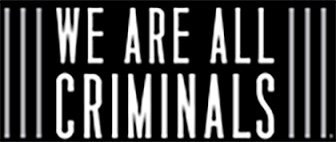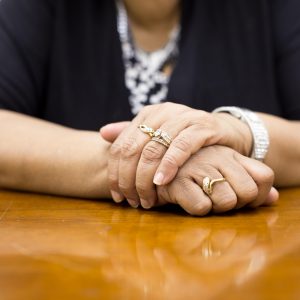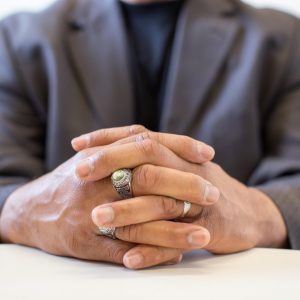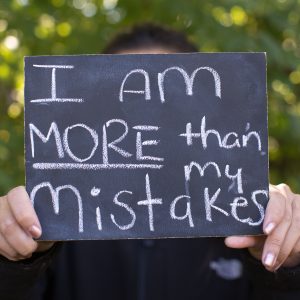TAKE IT PERSONALLY
For those without records, I hope you see a bit of yourself in the We Are All Criminals photos or in the stories. I hope you remember the events that haven’t been used to define your character at life’s every opportunity and turn.
I hope in that reflection, you take note of the context you have allowed yourself (I was young, drunk, stupid, in college, hanging out with the wrong crowd, just along for the ride, no one was hurt, I gave it back, or I didn’t mean to do it) and acknowledge that others may have been in a similar situation but were caught.
I hope some recognize the privilege you’ve experienced (the cop just told us to go home, the manager didn’t even question us) and appreciate that not everyone has benefited from that same privilege.
I hope you reflect upon how very different your own life could have been had you been burdened by a record, and consider the foreclosed futures of all of those who have been caught.
Finally, I hope the project inspires you to take action. Start the conversation in your community. Invite WAAC to your campus, city, capitol, coalition, place of worship, or business. Work to create the capacity for second chances in your own professional and personal lives, and to seek policy changes that do the same.
KNOW YOU’RE NOT ALONE
If you have been boxed in and locked out, if you have been judged by your worst moment and not your true worth: know that you’re not alone. We hear you, we see you, we need you. In the words of Anthony, the gentleman who inspired this project:
I just keep telling myself: one in four, one in four, one in four. I’m not alone. I’m not broken.
Four in four, four in four, four in four. We may all be criminals, but that’s not all we are.
You are not your record.
GET INFORMED
1. READ, WATCH, LISTEN
read
Michelle Alexander: The New Jim Crow: Mass Incarceration in the Age of Colorblindness
Daniel Beaty: Knock Knock: My Dad’s Dream for Me (a children’s book)
Nell Bernstein: Burning Down the House: The End of Juvenile Prison
Reginald Dwayne Betts: Bastards of the Reagan Era (poetry)
Paul Butler: Chokehold: Policing Black Men
Paul Butler: Let’s Get Free: A Hip-Hop Theory of Justice
Ta-Nehisi Coates: Between the World and Me
Angela Davis: Are Prisons Obsolete?
Ejeris Dixon and Leah Lakshmi Piepzna-Smarasinha, eds: Beyond Survival: Strategies and Stories from the Transformative Justice Movement
Baz Dreisinger: Incarceration Nations: A Journey to Justice Around the World
Alice Goffman: On the Run: Fugitive Life in an American City
Marie Gottschalk: Caught: The Prison State and the Lockdown of American Politics
Chris Hayes: A Colony in a Nation
Mitchell S. Jackson: Survival Math: Notes on an All-American Family
Deborah Jiang-Stein: Prison Baby: A Memoir
Ibram X. Kendi: Stamped from the Beginning: The Definitive History of Racist Ideas in America
Piper Kerman: Orange is the New Black: My Year in a Women’s Prison
James Kilgore: Understanding Mass Incarceration: A People’s Guide to the Key Civil Rights Struggle of Our Time
Audre Lorde: Sister Outsider
Marc Mauer: Race to Incarcerate (and a graphic retelling with Sabrina Jones)
Resmaa Menakem: My Grandmother’s Hands: Racialized Trauma and the Pathway to Mending Our Hearts and Bodies
Wes Moore: The Other Wes Moore: One Name, Two Fates
Peter Neufeld and Barry Scheck (Authors), Althea Wasow (Editor), and Taryn Simon (photography): The Innocents
Leonard Peltier: Prison Writings: My Life is My Sun Dance
Victor Rios: Punished: Policing the Lives of Black and Latino Boys
Joseph Rodriguez: Juvenile (photographs) Maya Schenwar: Locked Down, Locked Out: Why Prison Doesn’t Work and How We Can Do It Better
Shaka Senghor: Writing My Wrongs: Life, Death, and Redemption in an American Prison
Danielle Sered: Until We Reckon: Violence, Mass Incarceration, and a Road to Repair
Jeff Smith: Mr. Smith Goes to Prison: What My Year Behind Bars Taught Me About America’s Prison Crisis
Bryan Stevenson: Just Mercy: A Story of Justice and Redemption
Angie Thomas: The Hate U Give
watch
Broken on All Sides Gideon’s Army
The House I Live In Pull of Gravity
The Return 13TH
Adam Foss (Ted Talk)
Arthur Longworth (CLO Conference 2015)
John Oliver’s videos on prisons, prisoner reentry, mandatory minimums, bail, municipal violations, public defenders, and more
listen
The Waiting Room with Nadine Graves
2. CONNECT TO NETWORKS OF INFORMATION AND CHANGE
American Civil Liberties Union
Center for Community Alternatives
Collateral Consequences Resource Center
Families Against Mandatory Minimums
Formerly Incarcerated & Convicted People & Families Movement
3. GET CLOSE
Judges often say that people want mercy shown to the defendant they know—their brother, daughter, cousin, neighbor, friend— and vengeance wreaked upon the defendant they don’t. Collateral consequences often work the same way: the neighbor who did something stupid, the daughter that was unduly influenced, the cousin who has been sober for years may be given a second chance, shown mercy, through their connections and social safety net. But not everyone has a net. Some people are hanging on by a thin thread—and a criminal record, along with the anger, fear, and ultimate dehumanization invoked by it, can be the thing that cuts it.
Bryan Stevenson tells us that proximity is key. By being close to those in the criminal justice system, he says, he’s learned some basic and humbling truths, including this vital lesson: “Each of us is more than the worst thing we’ve ever done.”
It’s time to get proximate. To close the gap. To see the things that unite us—the hopes and dreams and desires we share as human beings—are far greater than the things that differentiate us.
Hire someone with a criminal record. Rent to someone on probation. Drive families to visit their loved ones in prison. Join study groups in institutions of learning and faith organized by formerly incarcerated people. Follow the lead of the people directly affected by mass incarceration. Stand shoulder-to-shoulder in city hall, your state legislature, and Congress as people with criminal records fight for their right to live a full life.
4. BE AN EMISSARY OF CHANGE
Talk to your family, your colleagues, your classmates, your friends about privilege, punishment, and disrupting the narrative of what it means to be a criminal. Talk to your boss and your board about changing policies and practices at work. Call your policymaker about reeling in our criminal code and collateral sanctions, restoring the right to vote, and banning the box. Support and increase restorative justice alternatives. Contact your alma mater about access to education.
Don’t stop at raising awareness—be an emissary of changing minds. Don’t stop till mass criminalization is a fading image in our nation’s rearview mirror.
Finally, invest in change. Support organizations, like WAAC, working to end mass criminalization. We cannot do this work without you.





